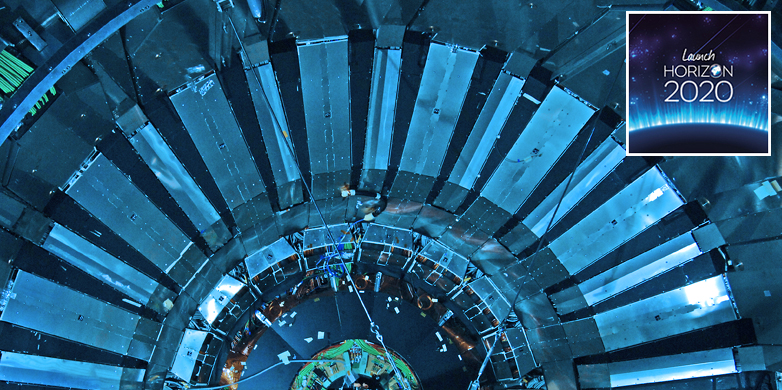The door is open again for ERC grants
Switzerland will be partially associated with the European research programme Horizon 2020 from mid-September. This partial association, limited until the end of 2016, will enable researchers in Switzerland to apply for funding from the European Research Council (ERC) again.
From Monday, 15 September 2014, researchers in Switzerland will again be able to apply directly for funding from the European Research Council in Brussels. Switzerland and the external pageEuropean Unioncall_made have agreed on a partial association with the European research programme Horizon 2020, as announced by the external pageState Secretariat for Education, Research and Innovationcall_made (SERI). An agreement to this effect is to be signed with retroactive effect in December 2014. The background is the exclusion of Switzerland from Horizon 2020 back in February of this year, owing to the referendum on the initiative against mass immigration.
The partial association will apply temporarily until the end of 2016 and covers all involvement of Swiss scientists in projects of the so-called first pillar of Horizon 2020 (‘Excellent Science’). As well as ERC grants, this also includes Marie Skłodowska-Curie fellowships for the support of research careers, the ‘Future and Emerging Technologies’ programme as well as research infrastructure funding. Switzerland is also associated with the ‘Teaming’ and ‘Twinning’ programmes within the ‘Spreading Excellence’ part of the programme. All Swiss projects falling within the scope of this partial association will be financed directly by the EU.
Third-country status to be partially upheld
Switzerland will continue to be able to participate in the second and third pillars of Horizon 2020 (‘Industrial Leadership’ and ‘Societal Challenges’) and in the ‘Science for Society’ part of the programme, but only as a third country. Although Swiss partners may join in the collaborative projects, they will not be able to receive direct financing from the EU. Instead, the SERI will offer direct support to Swiss researchers involved in collaborative projects of the second and third pillars.
Just an interim solution
‘We are satisfied,’ says Roland Siegwart, Vice President Research and Corporate Relations at ETH. ‘The door to European funding schemes is open again. Particularly access to the prestigious ERC grants is not only important for Swiss researchers but for the entire international ETH community.’ Siegwart adds that the interim solution currently achieved until the end of 2016 does not yet represent a definitive solution to research collaboration with the EU, and that full association still remains the declared goal. It remains open today whether Switzerland will be able to participate fully again in Horizon 2020 from 2017, or whether it will revert to the status of a third country for all parts of the programme. The participation conditions from 2017 depend on the continuation of the free movement of persons and the extension of this to Croatia.
Further information can be obtained from the EU GrantsAccess office at ETH Zurich.
SNSF foregoing advanced grants
Following the publicising of the partial association with the EU research programme from 15 September 2014, the external pageSwiss National Science Foundationcall_made (SNSF) announced that it would be foregoing its call for SNSF Advanced Grants as an emergency solution. Researchers should submit applications for Advanced Grants directly to ERC by 21 October 2014. However, the National Science Foundation will evaluate the applications for the replacement measures advertised in the spring of 2014 for the missed calls of the Starting and Consolidator Grants of the ERC as planned and also take care of them throughout the entire term.

